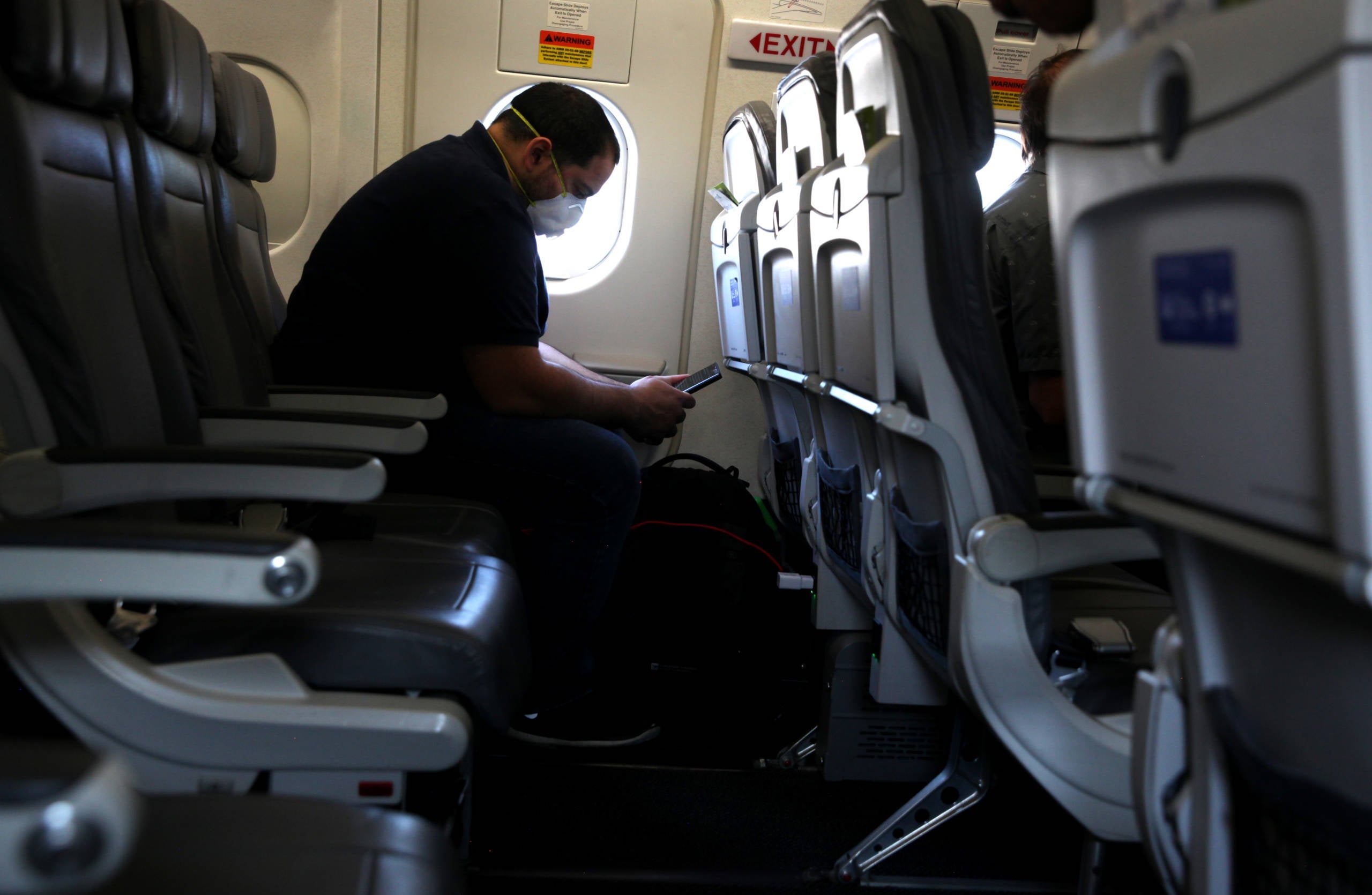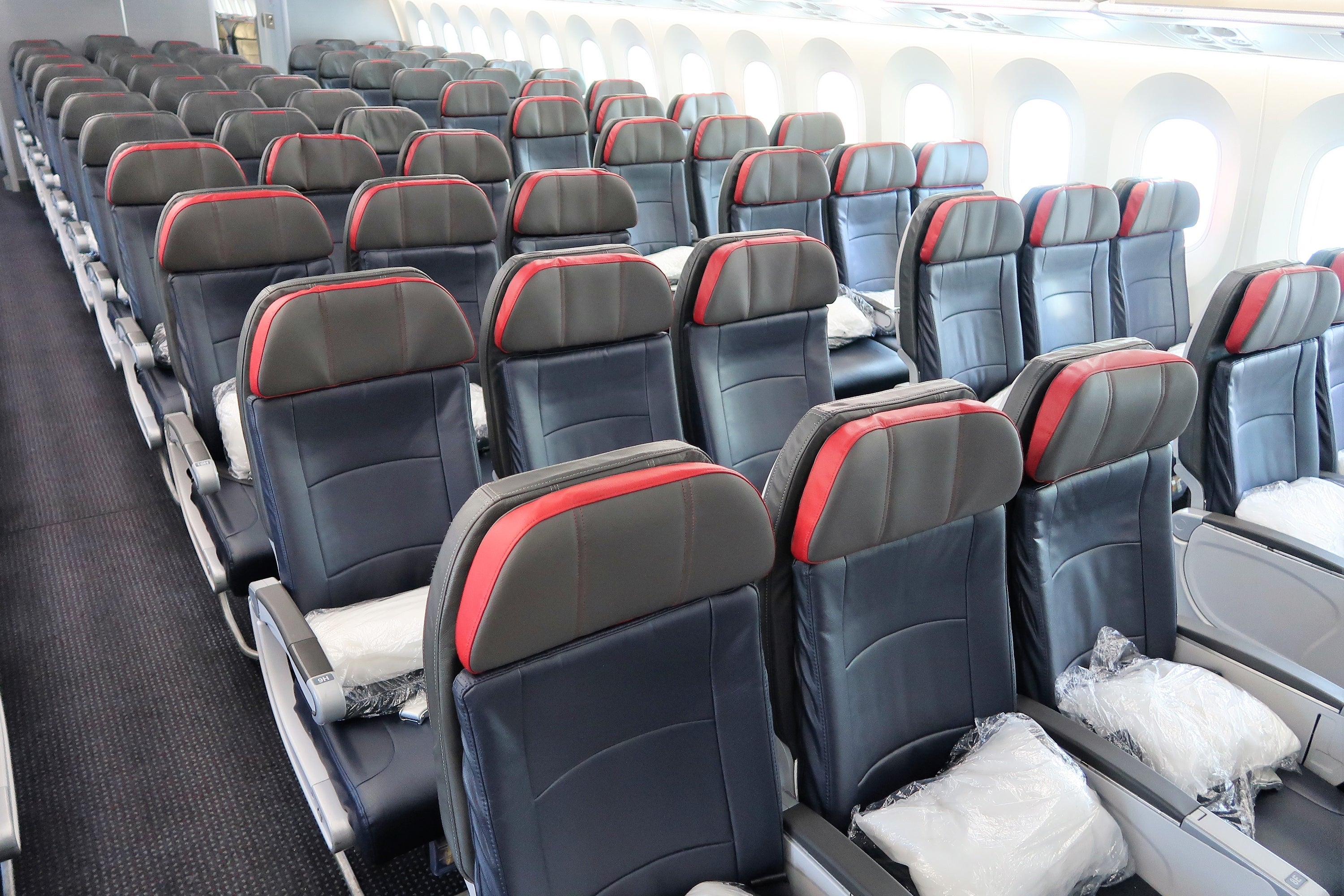How airlines are working to keep it clean amid coronavirus outbreak
Editor's note: This post has been updated with new information.
As the travel industry reopens following COVID-19 shutdowns, TPG suggests that you talk to your doctor, follow health officials' guidance and research local travel restrictions before booking that next trip. We will be here to help you prepare, whether it is next month or next year.
Coronavirus is having an outsize effect on the airline industry. Demand is down as corporations cut back on business travel, and vacationers increasingly keep it local amid fears of catching the disease.
To allay some travelers' fears, airlines are going out of their way to make sure their passengers know that the planes they'll travel on are sufficiently cleaned.
Sign up for the free daily TPG newsletter for more airline news.
Different airlines have taken different approaches to getting this info out, but the message across the board is the same: our planes are sanitary!
Related: Everything you need to know about traveling during the coronavirus outbreak.
However, a report from View From the Wing suggests that United Airlines may be having trouble following through all of its commitments on aircraft cleaning.

For example, the Chicago-based carrier is publicly saying as part of its CleanPlus program that all aircraft undergo electrostatic spraying before each departure. But the report states that such action is only taking place for planes stored overnight at its hubs and at bigger line stations.

What's more problematic is that regional aircraft flown under the United Express brand are not following through with everything that the mainline places are doing, such as adopting procedural UVC cleaning standards.
Like all other carriers, United faces a cash crunch that threatens the jobs of 36,000 employees. Part of those job cuts will come from those leading the cleaning initiatives, CEO Scott Kirby publicly stating that he will encourage his team to "explore and implement new ideas, new technologies, new policies and new procedures."
Delta CEO Ed Bastian stated that a traveler's perception of safety at the airport and in-flight will drive travel demand more than anything else. Backing up his statement are the practices and procedures Delta continues to put in place to keep passengers safe, from the the time you check-in until you're on your final walk out of the airport.
Related: We got an inside look at how Delta is cleaning planes between every flight
American Airlines now requires all flight attendants and passengers to wear face masks and hand them out to passengers as needed. The airline is also handing out sanitizing wipes to passengers where available, and will be deep cleaning between flights, including the use of strong disinfectants approved by the Environmental Protection Agency (EPA).
Tray tables, handles, seatbelt buckles, armrests, seatback screens, overhead bins, window shades, and other surfaces will get disinfected. Plus the airline expanded fogging with an EPA-registered hospital-grade disinfectant in all public areas on aircraft.
For Alaska Airlines, that meant posting a detailed video about how planes are cleaned between flights and overnight.
Southwest took a similar approach, posting a video on its website along with a written guide to its sanitation procedures.
United, American and Delta have all released statements outlining their cleaning procedures, with all three noting that they're adhering to updated guidance on airplane sanitation from the Centers for Disease Control and Prevention. They have also implemented policies mandating that all passengers wear masks aboard aircraft.
Related: American Airlines, Southwest now overtake Delta for the strictest mask policy in the US
International airlines, too, have taken steps to assure travelers of their cleanliness during the outbreak.
Meanwhile, airlines are embracing a PR strategy that highlights cleanliness and a focus on public health by instituting mandatory mask policies. In addition, they are highlighting flexible waivers and cancellations policies to encourage travelers to fly again.
Related: Why we need a mask mandate
Additional reporting by Brian Kim
TPG featured card
at Capital One's secure site
Terms & restrictions apply. See rates & fees.
| 5X miles | Earn 5X miles on hotels, vacation rentals and rental cars booked through Capital One Travel |
| 2X miles | Earn unlimited 2X miles on every purchase, every day |
Pros
- Stellar welcome offer of 75,000 miles after spending $4,000 on purchases in the first three months from account opening. Plus, a $250 Capital One Travel credit to use in your first cardholder year upon account opening.
- You'll earn 2 miles per dollar on every purchase, which means you won't have to worry about memorizing bonus categories
- Rewards are versatile and can be redeemed for a statement credit or transferred to Capital One’s transfer partners
Cons
- Highest bonus-earning categories only on travel booked via Capital One Travel
- LIMITED-TIME OFFER: Enjoy $250 to use on Capital One Travel in your first cardholder year, plus earn 75,000 bonus miles once you spend $4,000 on purchases within the first 3 months from account opening - that’s equal to $1,000 in travel
- Earn unlimited 2X miles on every purchase, every day
- Earn 5X miles on hotels, vacation rentals and rental cars booked through Capital One Travel
- Miles won't expire for the life of the account and there's no limit to how many you can earn
- Receive up to a $120 credit for Global Entry or TSA PreCheck®
- Use your miles to get reimbursed for any travel purchase—or redeem by booking a trip through Capital One Travel
- Enjoy a $50 experience credit and other premium benefits with every hotel and vacation rental booked from the Lifestyle Collection
- Transfer your miles to your choice of 15+ travel loyalty programs
- Top rated mobile app


